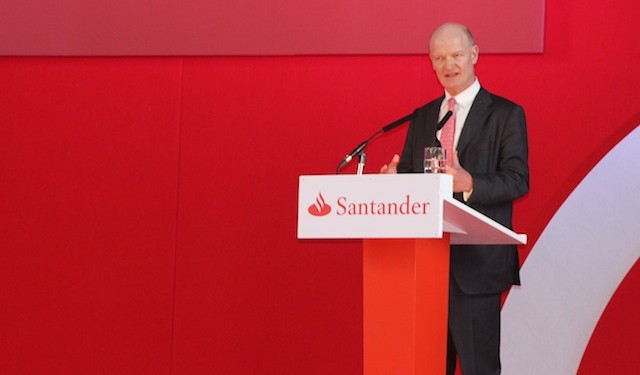The UK universities minister, David Willetts, has told The PIE News he wants to attract more foreign students to the UK, days after it was revealed that the Home Office plans to charge “high risk” visitors cash bonds to ensure they leave the country on time. The measure could be rolled out to students, dramatically raising the cost of study in the UK.
News and business analysis for Professionals in International Education
Have some pie!
UK: Willetts “wants more students” despite bonds
 Universities Minister David Willetts said he wanted to attract more international students to UK universities, days after a scheme to trial £3000 bonds for some visa holders was unveiled
Universities Minister David Willetts said he wanted to attract more international students to UK universities, days after a scheme to trial £3000 bonds for some visa holders was unveiled Commenting, a senior figure in the UK HE community said that Willetts’ comments were not disingenuous but evidenced the rift in government over how to handle student immigration policy.
As revealed in the press this weekend, the bonds – which a visa holder would forfeit if they overstayed – would cost £3,000 and initially target visitor visa holders from some high-risk countries under a pilot scheme. Although details are yet to be finalised, The Financial Times reported that India, Pakistan, Nigeria, Ghana, Sri Lanka and Bangladesh would be the countries targeted first.
“We’ve been trying to get students removed from the net migration figures and the minister has always supported us, as has the Prime Minister”
The Home Office also confirmed that if the pilot was successful, it would roll out to all visa types. “If the scheme is successful we’d like to be able to apply it on an intelligence-led basis on any visa route and any country,” said a spokesperson.
The bonds were widely condemned as discriminatory in the Indian press this week, and many fear that on top of other Tier 4 visa restrictions they will deter students from some of the UK’s biggest student markets. Nevertheless, at a Santander Universities event yesterday, Willetts told The PIE News that the Department of Business, Innovation and Skills was keen to attract more foreign students to the UK.
“Provided they’ve got the necessary academic qualifications, and the necessary English, they can come. And I believe we can increase the number of overseas students coming to Britain, because overseas students are guaranteed a very warm welcome here,” he said.
At the same event, Professor Steve Smith, the vice chancellor of the University of Exeter, said he believed Willetts genuinely wanted more students, and that in fact the government remained divided over student immigration – unsure of how to handle it, at a time when the anti-immigration UK Independence Party (UKIP) was gaining in popularity.
He also suggested the Home Office had placed the story about the bonds in the press over the weekend, before an official government announcement – a further sign of the rift.
“I think there’s a fight in government over the nature of migration. We’ve been trying to get students removed from the net migration figures and David Willetts has always supported us, as has the Prime Minister,” he said.
“So it’s not in any sense disingenuous [to say he wants more students]. I’ve done four trips with the Prime Minister abroad, he believes it, too. It’s just that if you’re in the Conservative Party, migration is an issue.”
Student numbers from South Asian countries fell dramatically last year, something many attribute to tougher visa measures such as credibility interviews in high-risk markets (which will be rolled out to 100,000 students annually this year).
Overall, though, non-European Economic Area university applications have climbed fractionally.
India, Pakistan, Nigeria, Ghana, Sri Lanka and Bangladesh are in the government’s sights
Asked whether the recent fall in visa applications from India suggested many students from that market were illegitimate, Willetts refused to draw a connection and pointed to a rise in Chinese applications at universities. He also noted that the number of students taking British qualifications overseas had risen dramatically, but conceded there was less economic benefit in offshore education.
At the event, Santander’s chairman Emilio Botín announced the bank would increase scholarships for British students to study overseas, and foreign students to come to the UK, from 1,500 to 2,000 next year.
The bank contributes around 80% of its corporate social responsibility budget to higher education initiatives worldwide.
Still looking? Find by category:


